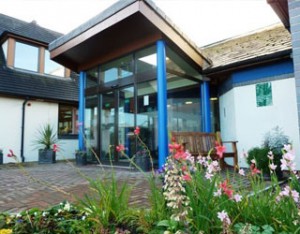At the age of just 22, the very last thing you want to hear is that you have stage 4 cancer, but for some people the only response is to tackle it head on – which is just what Ellie Edna Rose-Davies did
‘I barely noticed it at first. A bump on the right side of my neck, small but definite. I was 22 and had no health issues (I’d never even broken a bone), so I didn’t think much of the lump. But my boyfriend was concerned, so I made an appointment to go to the GP. For the next few months, I would see and feel more lumps spreading up my neck, and even larger ones under my armpits. I went to the doctor three times, where I was told: “It’s not cancer” and that I had “nothing to worry about”.
Finally, the doctor decided to do further blood tests and, later, referred me for a biopsy and scan. When I went with my mum and boyfriend to the hospital to receive the results, I’ll never forget the doctor’s opening line. “About the cancer…” And that was my diagnosis. Advanced stage 4 Hodgkin lymphoma. He was unaware that we hadn’t been informed already and seemed almost as shocked as we were. I remember my boyfriend shouted, “No!” straight away. He and my mum were in tears, but I reacted differently. Cancer was something I had to deal with, that I had to overcome.
My Band, Goat Girl, were working on our second album in the studio, so I called Rosy, our drummer, and asked them to share the news with the others. I felt bad passing on the burden because I thought it was my duty to give the bad news.
On my first day of chemo, I remember the lift doors opening up on the adult floor, revealing all these people tethered to metal poles, connected by plastic tubes. With 50% of the population having cancer at some point in their life, this scene is more common than we like to think, but people’s reluctance to talk about it makes it a shocking spectacle when you see it.
I was on the teenage and young adult ward, even more shocking in its own way. On this floor I was the oldest person, and some of the other patients were barely out of primary school. Some had missing limbs (from amputation), some had bandages over one eye, but they were inspiringly resilient. So my perspective changed from “It’s not fair, I’m too young to have cancer” to “Fuck, these kids are far too young to have cancer!” I felt privileged to have had a few more years behind me and my heart ached for them.
It’s a very strange and unfathomable thing to be told you have stage four cancer with tumours in five different places in your body. Initially, I pictured these tumours almost as living creatures, separate from myself – parasites. However, after my first chemo session, I had a bath and found myself sending love and apologies to them. It just felt better to greet them with kindness rather than hostility, seeing as they were undeniably a part of me and I would be cohabiting with them for the next few months.
Throughout this treatment, an incredible close-knit group of friends and family would visit and keep me company. Yet still I felt extremely isolated in my experience – none of my peers (or family) fully understood what I was going through and it was a very lonely time.
But I was lucky in that it all worked. I recall driving home with my mum after my last chemotherapy session. I felt ill from the drugs yet somehow I never felt more alive. The Technicolor world outside the car looked trippily vivid; my view of life all the more beautiful.’
Ellie Edna Rose-Davies
Taken from The Guardian Newspaper



Leave a Comment